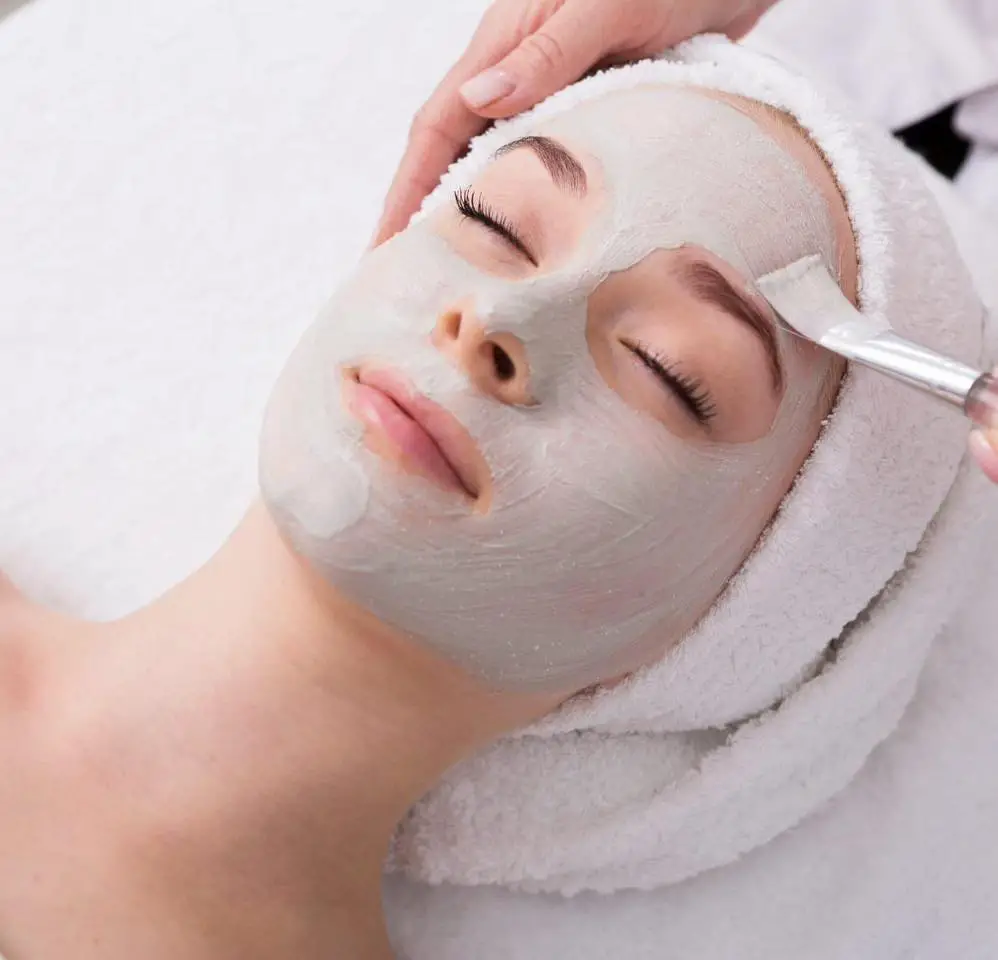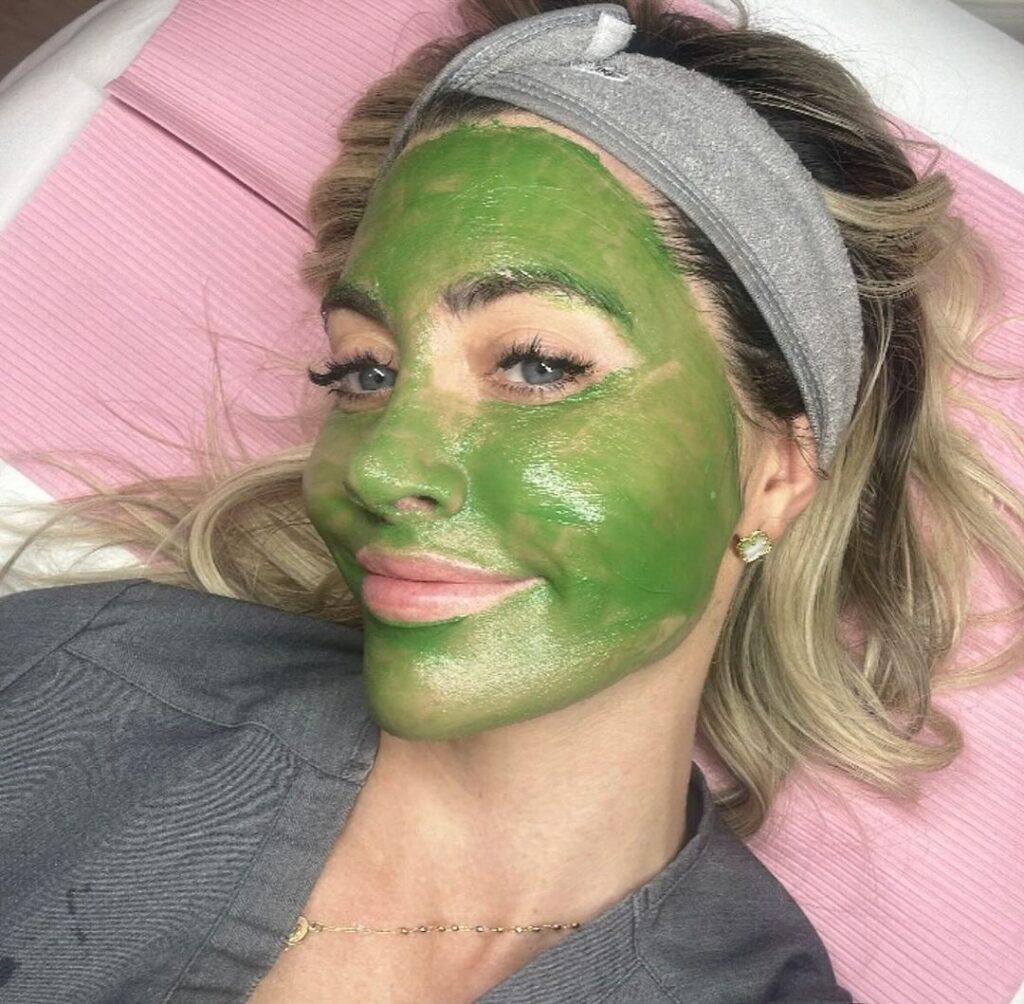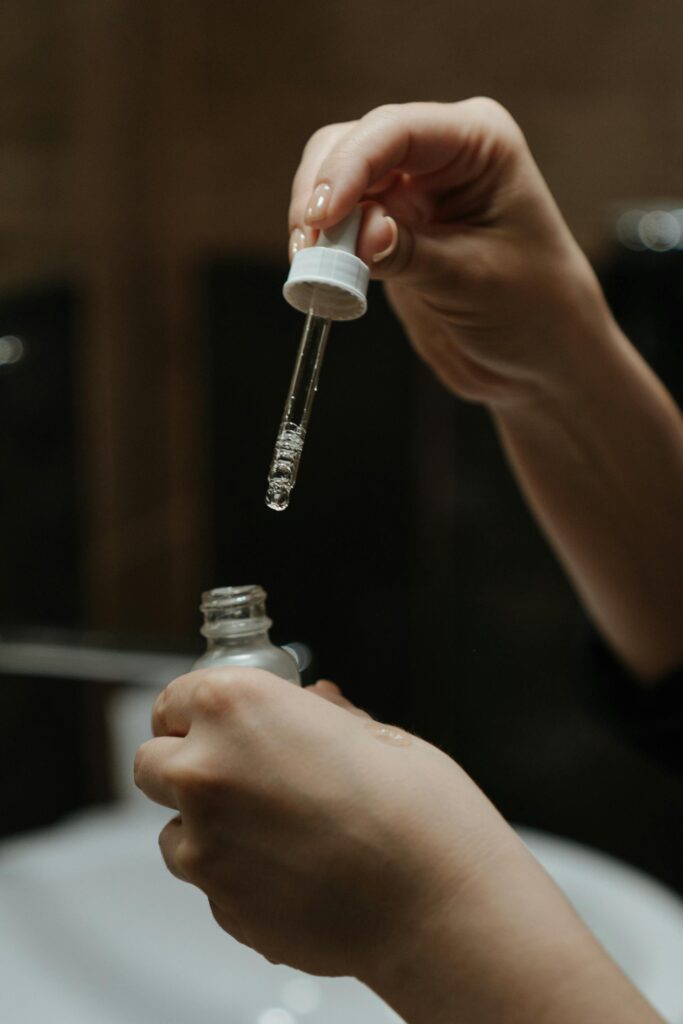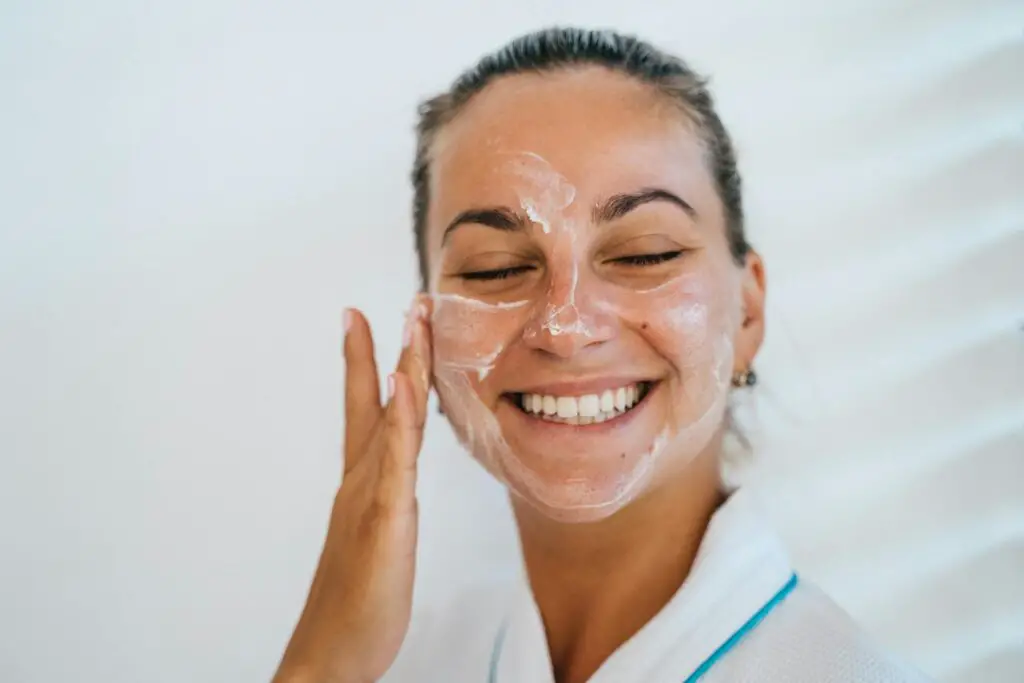Taking care of your face is crucial for maintaining healthy and glowing skin. With a wide range of products and routines available, it can be overwhelming to choose the right one for you.
However, natural face skin care routines have gained popularity due to their effectiveness and minimal use of chemicals.
In this post, we will explore eight natural face skincare routines that you should follow to achieve radiant and youthful-looking skin.
Busy? Save this pin for later.
1. Cleansing
The first and most essential step in any skincare routine is cleansing. Cleansing removes dirt, excess oil, and impurities from your skin, allowing other products to penetrate effectively.
When opting for a natural face cleanser, it’s important to look for ingredients that are gentle yet effective. Some excellent options include aloe vera, tea tree oil, or green tea extract.
To cleanse your face, start by wetting your skin with lukewarm water. Gently massage the cleanser onto your face using circular motions, focusing on areas prone to congestion such as the T-zone. Rinse thoroughly with lukewarm water and pat dry with a clean towel.
Tips for Effective Cleansing:
- Always cleanse your face twice a day, in the morning and evening, to remove dirt and impurities accumulated throughout the day.
- Avoid using hot water, as it can strip the skin of its natural oils and cause dryness.
- If you wear makeup, consider using a gentle makeup remover before cleansing to ensure a thorough cleanse.
You Might Also Like: 5 Worst Foods for Skin
2. Exfoliating
Exfoliation is a crucial step in any skincare routine as it helps remove dead skin cells and promotes cell turnover.
Natural exfoliants are a great choice as they are gentle on the skin while effectively sloughing away dullness. Some popular natural exfoliants include sugar, coffee grounds, or oatmeal.
To exfoliate your skin, dampen it with lukewarm water. Take a small amount of the exfoliant and gently massage it onto your face using circular motions.
Pay extra attention to areas that tend to be rough or prone to congestion. Rinse off with water and pat dry.
Tips for Effective Exfoliation:
- Exfoliate your skin 1-2 times a week, depending on your skin type and sensitivity. Over-exfoliation can lead to skin irritation.
- Avoid harsh scrubbing or using exfoliants with large particles, as they can cause micro-tears in the skin.
- If you have sensitive skin, opt for a gentle chemical exfoliant containing ingredients like alpha-hydroxy acids (AHAs) or beta-hydroxy acids (BHAs).
3. Toning
Toning is an important step in your skincare routine as it helps balance the pH of your skin and tighten the pores.
Natural toners are excellent choices as they provide additional benefits without harsh chemicals. Some popular natural toners include rose water, witch hazel, or apple cider vinegar.
To tone your skin, soak a cotton pad with the toner of your choice and gently swipe it across your face, avoiding the delicate eye area. Allow the toner to dry naturally before moving on to the next step.
Tips for Effective Toning:
- Choose a toner that suits your skin type and addresses your specific concerns. For example, rose water is soothing and hydrating, while witch hazel is a natural astringent.
- If using apple cider vinegar as a toner, dilute it with water to prevent any potential skin irritation.
- Avoid alcohol-based toners, as they can strip the skin and disrupt its natural balance.
4. Hydrating Mask
Applying a hydrating mask once or twice a week provides intense moisture and nourishment to your skin. Natural masks containing ingredients like honey, avocado, or aloe vera gel are excellent choices.
To apply a hydrating mask, start with clean, dry skin. Apply a thick layer of the mask evenly on your face, avoiding the delicate eye and lip area.
Leave it on for the recommended time mentioned on the product’s packaging. Rinse off with warm water and pat dry.
Tips for Effective Masking:
- Before applying a mask, ensure your skin is well-cleansed and free from any makeup or impurities.
- Consider using a brush or spatula to apply the mask, as it provides a more even and hygienic application.
- For an added relaxing experience, you can place cucumber slices or chilled tea bags over your eyes while the mask is on.
You Might Also Like: How to Have Clear Skin With Natural Ingredients
5. Serum
Serums are highly concentrated products that target specific skin concerns, such as hydration, brightening, or anti-aging.
Applying natural serums can provide your skin with the benefits it needs without unnecessary chemicals. Look for serums containing ingredients like vitamin C, hyaluronic acid, or rosehip oil.
To apply a serum, start with clean, toned skin. Take a few drops of the serum onto your fingertips and gently press it onto your face, focusing on areas that need extra attention or have specific concerns. Allow the serum to absorb fully before moving on to the next step.
Tips for Effective Serum Application:
- Apply the serum after cleansing and toning, but before moisturizing, to ensure maximum absorption.
- Use gentle pressing motions rather than rubbing to avoid unnecessary friction on the skin.
- Always follow the instructions provided by the manufacturer regarding the frequency and usage of the serum.
6. Moisturizing
Moisturizing is a vital step in any skincare routine as it helps keep your skin hydrated, maintains its elasticity, and prevents dryness.
Natural moisturizers that suit your skin type can provide the nourishment your skin needs. Look for ingredients like shea butter, jojoba oil, or coconut oil.
To moisturize your skin, take a small amount of the moisturizer and apply it to your face and neck using upward strokes.
Gently massage it into the skin until fully absorbed. Allow it to absorb completely before applying makeup or going to bed.
Tips for Effective Moisturization:
- Choose a moisturizer that is suitable for your skin type, whether it’s dry, oily, or sensitive.
- Consider using a separate moisturizer for your day and night routines, as the skin’s needs differ throughout the day.
- Apply moisturizer to slightly damp skin, as it helps lock in moisture and improves absorption.
7. Sun Protection
Protecting your skin from harmful UV rays is crucial to prevent premature aging and reduce the risk of skin cancer.
Choose a natural sunscreen with a broad-spectrum SPF of 30 or higher to shield your skin effectively.
Apply it generously to all exposed areas and reapply every two hours, especially when spending time outdoors.
Tips for Effective Sun Protection:
- Apply sunscreen as the last step of your skincare routine, after moisturizing and before makeup.
- Don’t forget to apply sunscreen to often-neglected areas such as the neck, ears, and back of the hands.
- Seek shade and wear protective clothing, such as hats and sunglasses, for additional sun protection.
8. Healthy Lifestyle Habits
In addition to following a natural face skincare routine, adopting healthy lifestyle habits can further enhance the health and appearance of your skin.
Here are some habits to incorporate into your daily life:
- Stay Hydrated: Drink plenty of water throughout the day to keep your skin hydrated from within.
- Eat a Balanced Diet: Include a variety of fruits, vegetables, whole grains, and lean proteins in your diet to provide essential nutrients for healthy skin.
- Get Enough Sleep: Aim for 7-8 hours of quality sleep every night to allow your skin to repair and rejuvenate.
- Exercise Regularly: Engage in regular physical activity to improve blood circulation and promote a healthy glow.
- Avoid Smoking and Excessive Alcohol Consumption: Smoking and excessive alcohol consumption can have detrimental effects on your skin’s health and appearance.
By following these eight natural face skincare routines and incorporating healthy lifestyle habits, you can achieve a healthier and more radiant complexion without relying heavily on chemical-laden products.
Don’t forget to be consistent with your natural face skincare routine and listen to your skin’s needs.
You Might Also Like: 7 Secrets to Have Oil-Free Skin
FAQ
Q1: How often should I cleanse my face?
A1: It is recommended to cleanse your face twice a day, in the morning and evening, to remove dirt and impurities.
Q2: What should I avoid when exfoliating my skin?
A2: Avoid harsh scrubbing or using exfoliants with large particles, as they can cause micro-tears in the skin.
Q3: How should I apply a hydrating mask?
A3: Start with clean, dry skin and apply a thick layer of the mask evenly on your face. Leave it on for the recommended time mentioned on the product’s packaging before rinsing off with warm water.
Q4: When should I apply a serum in my skincare routine?
A4: Apply the serum after cleansing and toning, but before moisturizing, to ensure maximum absorption.












Leave a Reply
You must be logged in to post a comment.